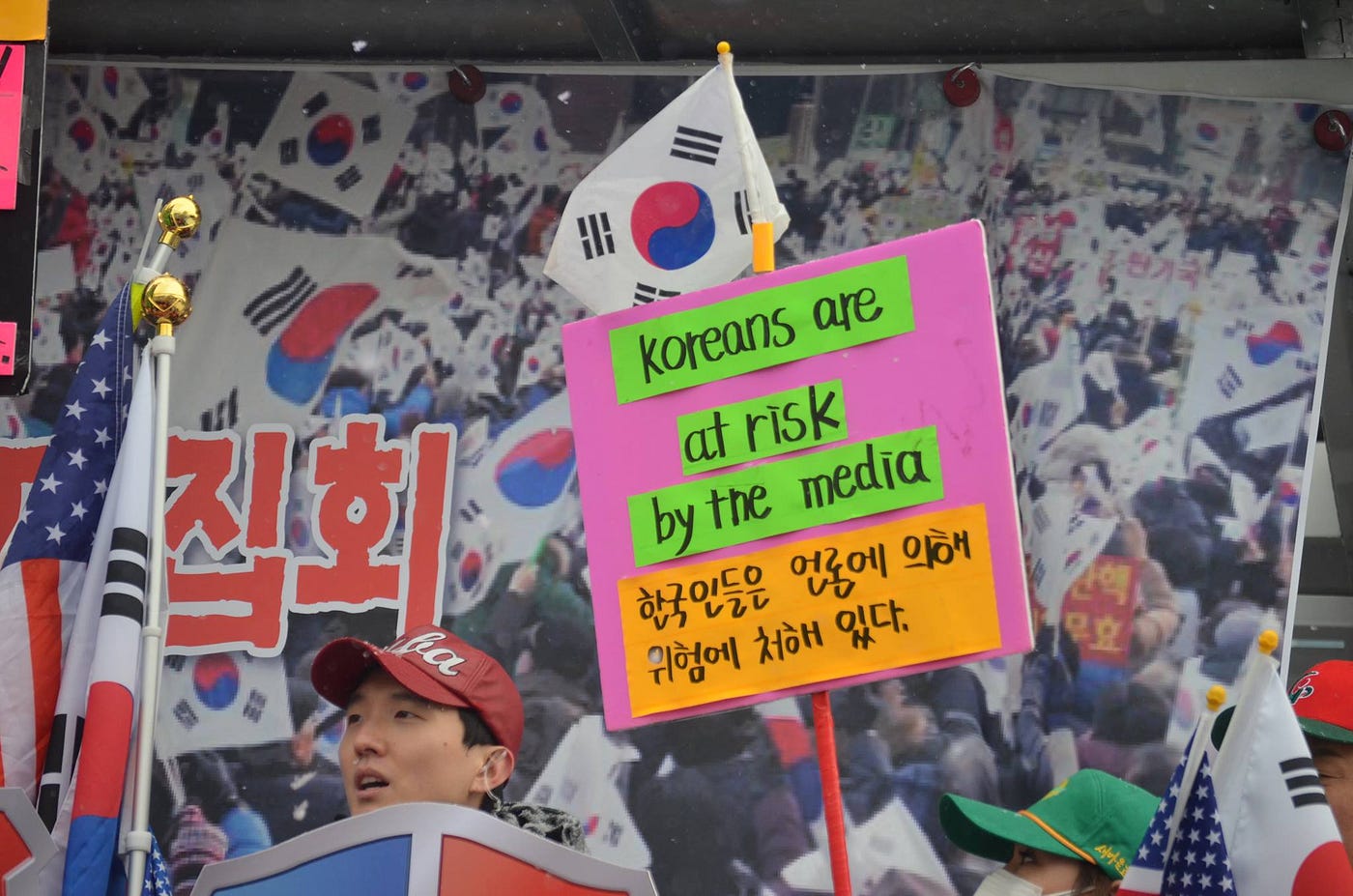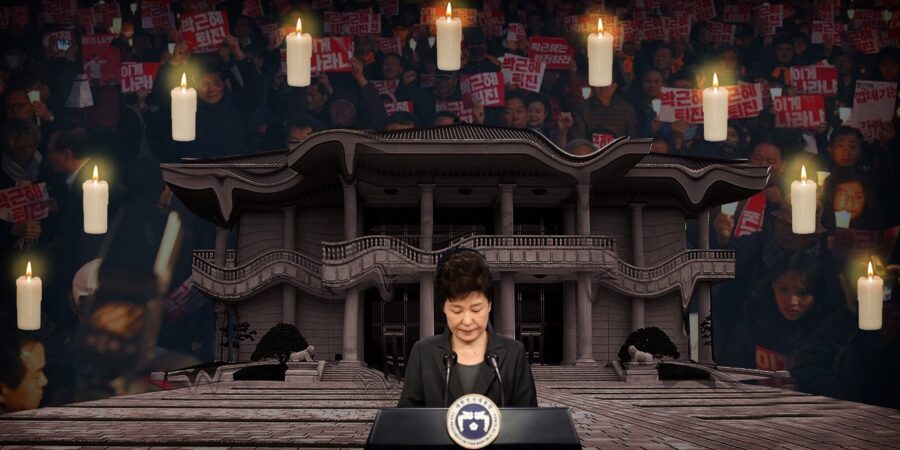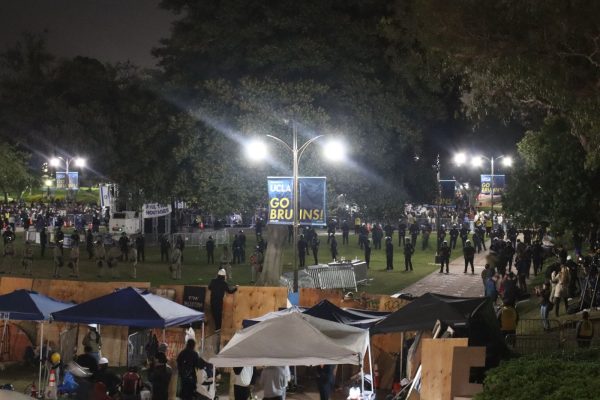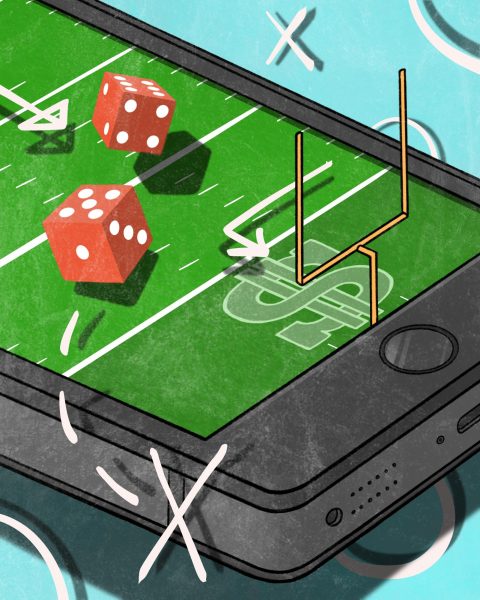When Politics and Emotions Collide
The truth behind South Korea’s president’s impeachment
On February 25, 2013, Park Geun-hye was sworn in as the 11th president of South Korea. She was removed from office on March 10, 2017.
Hundreds of thousands of South Koreans poured out into the streets to celebrate the minute the gavel came crashing down on the sound block. They laughed, cried and embraced each other in sheer happiness.
Emotions ran high off the streets, too. Social media feeds were flooded with jubilant posts by supporters of the impeachment, often a photo of the anti-Park candlelight protests accompanied by a congratulatory message.
Throughout the protests and impeachment process, the attention of the world became focused on South Korea, a small country that is otherwise under the radar. Numerous English-language media platforms reported the candlelight protest and impeachment process as peaceful and democratic. Immediately after the impeachment, the Washington Post published an opinion piece with the iconic headline, “South Korea shows the world how democracy is done.” Furthermore, the Financial Times published a piece with the headline, “South Korea’s democracy shines through in a crisis.”
The headline of both pieces would be true if I were to define democracy as mob rule. However, as that definition goes against the intent of both writers, I will define democracy as a fair means for the citizens of a country to choose their leaders and to hold them accountable for their actions.
Note the word “fair.”
In that case, sorry to burst anyone’s bubble, but South Korea showed the world exactly how not to practice democracy.
What I just said and am about to say next won’t sit nicely with a vast majority of Koreans living at home and abroad. My opinions on this matter are highly unpopular and I doubt any mainstream newspapers have published content that mirror my views. After all, well-known Korean news outlets were flooded with stories of “the evil President Park and her posse,” which I will explain in detail later.
The people and high court of South Korea, which is a constitutional democracy, failed to abide by what is mandated in the Constitution in order to oust former President Park. The South Korean people were swayed by the media which reported an extremely biased and distorted story, then in turn were used by politicians whom I assume had a hidden agenda to usher in a new era of liberal rule. The start of the controversy leading up to the impeachment provide much room for skepticism.
The initial reason behind the controversy surrounding the former president is quite petty. It involves former President Park’s longtime friend Choi Soon-sil, a businessman and former competitive fencer Ko Young-tae, Choi’s daughter Jung Yoo-ra and a puppy. According to Ko’s testimony at a televised parliamentary hearing last year, he decided to exact revenge on Choi after she got angry at him for going out to play golf instead of taking care of her puppy when she wasn’t home. This incident took place three years ago in 2014.
According to Ko, he first met Choi in 2012, shortly after former President Park was elected to office.
“When I was running a bag manufacturing company called Villomillo, my friend asked me to bring some new items (to a designated place), so I did. That’s when I saw Ms Choi for the first time”

However, numerous reports tell otherwise. The South Korean media reported that Choi and Ko met in 2006 at a host bar in the Seoul district of Gangnam, the subject of singer Psy’s hit song, “Gangnam Style.” They quickly became close and Ko developed his accessory brand Villomillo with the help of Choi. She would later commission him to design bags and clothing for former President Park.
The Pandora’s box opened when Ko decided to blow the whistle and pay Choi back for “treating him like a slave, swearing at him many times.” According to his testimony, Choi’s outrageous behavior went on for a long time, which Ko could not take any longer. He said, “ She insulted me and acted as if her underlings were subhuman.” The puppy incident was the final straw.

Enraged, Ko decided to expose Choi’s ties to the Blue House, the official residence of the president. At that point, he was close enough to Choi to be aware that she held a lot of influence over former President Park — to the extent that she edited Park’s speeches and decided what she would wear to public events.
So what exactly is the relationship between Choi and Park that allows the former to treat the latter as her puppet? At the end of the day, Park is an intelligent woman who speaks five languages and could have easily reviewed state secrets herself and asked a government employee to edit her speeches.
The problem is that Choi’s father and Park’s father, the late-President Park Jung-hee, had ties. When the late President Park and his wife were assassinated, Choi was the individual who stayed close to the orphaned Park. Now it becomes pretty self-explanatory as to why Park is so weak in front of Choi — she feels “indebted.”
Knowing this, Ko began to collect evidence of the relationship between Choi and Park, videotaping Choi giving orders to two presidential aides as if they worked for her. He also took hold of former President Park’s itinerary for an overseas trip, which showed that even the color of the clothing she wore were based on Choi’s recommendations.
In 2015, Ko handed over the clip to Chosun TV, but the news channel held back on airing it to allow its journalists to carry on further investigations of Choi and her ties to the Korean government. In October 2016, he approached JTBC, a nationwide cable TV network, for an interview. During the interview, he hinted at Choi’s overreaching presence in presidential affairs.
“Choi’s favorite thing to do is to edit presidential speeches”
In an episode of “pure coincidence” that seems almost staged to me, one of the reporters at JTBC discovered in a trash can, a discarded tablet that apparently belonged to Choi. The tablet contained edited drafts of 44 speeches and statements former President Park had given from 2012 to 2014. The tablet was touted as key evidence of Choi’s corruption during the investigation and JTBC was lauded for discovering it.
On Oct 24, 2016, JTBC aired their findings. Chosun TV released Ko’s videos a day later. The nation was thrown into a state of chaos, and thus began the long journey to impeachment.
To be fair, bribery scandals (involving big companies like Samsung) did circle former President Park. However, contrary to the belief of many ignorant South Koreans who relied solely on the blatantly biased news to have their questions answered, Park did not benefit from the alleged bribes. It was her confidante, Choi, who reaped all the benefits. She also spearheaded the creation of shell companies overseas to siphon money and her daughter, Jung, received preferential treatment from the prestigious Ewha Womans University.
Essentially, former President Park’s “crime” is that she took the advice of a supposed “friend” to run the country, who turned out to be a greedy and devious individual. Choi used Park’s name to take money from the business elite, such as Samsung’s heir Lee Jae-yong, who is now in jail. She would convince them to donate to charities —which probably weren’t even charities — in exchange for favors.
Don’t get me wrong, I believe former President Park should be at fault for letting all of this go if she was aware about it, which she probably was. She obviously was not a very effective president. However, nowhere in the Korean Constitution does it state that her actions are impeachable offenses, especially when she did not dip her hands into the muck.
Keep in mind that there are other incidents that occurred throughout this whole ordeal, which I will not go over in detail. Providing the complete backstory would literally make this article a web novel, which I’m sure isn’t ideal. I’ve provided links throughout the article through which you can read a more in-depth analysis of the events. But as always, take everything you read with a grain of salt — there isn’t much unbiased content out there regarding this scandal.
What angers me like no other, however, is that the media played the biggest role in the unjust ousting of the president. As I have mentioned before, unbiased content covering both sides of the scandal were nonexistent in mainstream Korean media. JTBC, which was the first TV network to air contents of the scandal, is at the core of allegations that the media was taking orders from the Democratic Party of Korea to dismantle former President Park’s party, the Liberty Korea Party.

I can attest to this allegation for the most part. I spent a lot of time watching JTBC during the early days of the scandal, and literally everything the anchor ever said or aired was so blatantly anti-Park. I was basically watching an hour-and-a-half of political commentary disguised as “news.”
I believe news outlets should always stay unbiased and uninvolved. However, earlier this January, a reporter from JTBC located Jung Yoo-ra, the daughter of Choi Soon-sil, in Denmark. After failing on multiple attempts to get Jung to answer his inquiries, the reporter called the police to arrest her.
That’s when everything went wrong. The fact that the reporter filmed and aired the scene of the arrest violates the principle that journalists should only report the incident, not intervene. Many people might believe he merely did his duty as a citizen of Korea, but if he had decided to declare himself a citizen, he should have given up the report. And if he had decided to declare himself a journalist, he should have stayed an objective observer. By calling the police to arrest Jung and airing the scene as an exclusive, the JTBC reporter clearly broke the tenets of press ethics.
And for what? Higher viewer ratings? Or something deeper and darker, like being a dog for the liberal Democratic Party? We would never know, but keep in mind that JTBC already had very high viewer ratings at that point. They already had the trust of a vast majority of South Koreans. Some even see Son Suk-hee, president of JTBC’s news reporting division, as a god.
Korean news organizations, primarily JTBC, were successful in generating uproar among the citizens of South Korea, especially young adults. They wrote their stories in such a way that painted former President Park, her confidante Choi and Choi’s daughter Jung as the most villainous of villains, always failing to stay unbiased and fair.

26-year-old Julianna Haahs, who is majoring in architecture at the University of Pennsylvania, witnessed both the anti-Park candlelight rallies and pro-Park (anti-impeachment) Taegukgi (the Korean flag) rally during her stay in Korea.
Haahs said she was worried of the media turning a blind eye to the Taegukgi rallies.
“That’s why I tried to get the news out to outlets that are willing,” she said.
She also added that the anti-impeachment protesters were distrusting of the Korean media because of their success in negatively influencing the country’s youth.
“I have seen first-hand how serious these people are to save their country from what they believe are hidden motives that the press has blinded the people to, particularly the youth,” she said.

And thanks to the propulsion of the media to go against former President Park, the candlelight rally made its comeback. Hundreds of thousands of citizens rushed out to the streets of Seoul every night, wielding candles. Some people who live in the lower provinces of the country made long drives to join the main rally in Seoul.

Sure, the rallies itself were peaceful, which I guess is a good thing. But that is beside my point. What struck me as pathetic and strangely funny about the candlelight rallies was that they seemed like festivals. People laughed, sang and danced. Famous singers and rock bands showed up to some of the big-scale rallies and sometimes sang self-composed songs about how Park should be removed from office because of X, Y and Z. A group of celebrities even released a song about the scandal. Something that annoys me so much is that a lot of the younger people came out to the candlelight rallies to have fun with their friends, not really knowing why so many people were out there, which they stupidly disclosed on social media.
It still blows my mind to see the stark contrast between the anti-Park and pro-Park rallies. One party sang, laughed and danced into the night, sometimes doing the “wave.” The other came out and marched, often stoic.
Unfortunately, the candlelight rallies blew up to such a proportion that the heat reached the high court and the prosecution office. The Korean people wanted her out of office, and they wanted it that very moment. The press, the court, the prosecution office and politicians all bowed to the wishes of the public and upheld the impeachment. The inquiry against Park was left incomplete and when prosecutors asked for an extension, it was denied. Essentially, Park was ousted on allegations and half-formulated claims. She was removed from office before anyone could bring cold, hard evidence to the table.
This is the primary reason as to why I am so angry and disappointed that the American media decided to tout Park’s impeachment as exemplary and in line with democracy. Yes, the rallies were relatively peaceful, but so what? Is it truly a democracy when the people who have the power to seek the truth and stop injustices from happening are swayed by a mob? No, that’s called tyranny of the majority and the higher-ups in Korea know that. I know they do.
And shame on the Korean people who celebrated on March 10, 2017. Shame on the business owners who profited off of the impeachment, selling alcohol at half-price to “commemorate the occasion.” I am thoroughly ashamed to be a from a country where human emotions hold superiority over the law.
An ideal democracy is fair. It always sides with justice and is never hasty. The first impeachment of the first female leader of East Asia, was the opposite of all those things.











